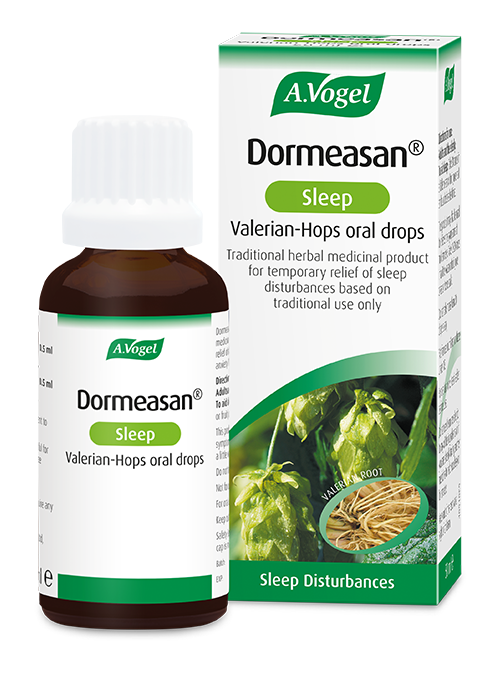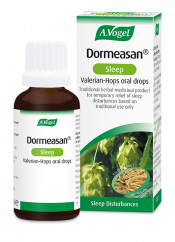Not sure if it’s poor sleep or insomnia?
Very poor sleep and insomnia may sound like the same thing, and they are both sleep problems, but insomnia is actually a medical condition which needs to be diagnosed by your doctor and is often caused by stress and anxiety.
Insomnia can leave you feeling fatigued, irritable, stressed or anxious, cause you to have difficulty concentrating or even have trouble building or maintaining relationships, so if you relate to these common insomnia symptoms, it’s important to speak with your doctor.
Self-help tips for insomnia
As well as speaking to your doctor about possible treatments, there are a few things you can do to help yourself. These include simple lifestyle changes that will help you deal with the stress and anxiety that can lead to insomnia and help you to enjoy a good night’s sleep.
1. Cut out the caffeine
Most people know that coffee is not good for sleep, but it is easy to consume caffeine from other sources such as diet/sport drinks, tea (including green tea), cola, chocolate and even some cough and cold remedies. So if you have insomnia, check the labels of everything and be aware that sensitivity to caffeine varies enormously from individual to individual – some people can drink it all day, for others even one cup in the morning will stop them sleeping.
As a coffee alternative in the morning why not try our tasty Bambu® Latte.
2. Try herbal remedies
There are lots of herbs that calm the nervous system, relax the muscles and act as sedatives. The most common are Valerian, Hops, Passion flower and Oat straw. All are worth trying, as they have no side effects and are safe to take long term (unlike prescribed sleeping pills). Our liquid extract of Valerian and Hops can help people get to sleep in as little as thirty minutes.
3. Avoid ‘lie-ins’
Most sleep experts agree that trying to catch up on sleep at weekends or holidays will actually make your insomnia worse in the long term. The body needs, basically, to know when to sleep and when to wake and this is governed by complicated hormonal processes.
It doesn’t know, for example, that it is Saturday or a Bank holiday and so you will confuse your body with lie-ins. It may feel counter-intuitive, but if you have a sleep problem, the best thing to do is to go to sleep and routinely wake up at the same time every day to see if this actually helps your sleep patterns after a few weeks.
4. Tire your body out with exercise
If you have insomnia, regular exercise has been shown to help in the long term. However, to achieve the best effect, it’s useful to take a note of the times at which you exercise and for how long. Very energetic workouts are best saved for the daytime as they are stimulating and could wake you up at night. Gentle exercise such as yoga before bed or simply walking for half an hour after dinner is best.
5. Limit screen time
Whether it’s an iPad, smartphone, laptop…whatever your device, it will emit a particular wavelength of bright light which will suppress the production of melatonin, the hormone responsible for making you feel sleepy. In addition, people use devices to surf the Internet, send emails, work, play games, etc. – all things that are very stimulating to the nervous system. Try to turn everything off by 9pm.
6. Make time to wind down
Many of us go to work, then come home and rush about trying to get a lot done in the evening. We then collapse into bed exhausted but still thinking of the next day’s ‘to do’ list. With stress chemicals still flooding our nervous system, it’s no wonder we can’t sleep.
It is wise to find time before bed, even ten minutes, to give the body a chance to relax and prepare yourself for sleep by meditating, reading, listening to music or doing anything you find relaxing.
7. Create a good sleep environment
Practising good sleep hygiene such as making sure you have a comfortable bed (if you have pets, consider getting them to sleep elsewhere if they disturb you), and that your bedroom is cool and dark can help you sleep better. Some insomniacs find it beneficial to dim all the lights in their house in the evening to let the brain know that it is night-time.
8. Avoid alcohol at night
Yes, it does help you to get to sleep, but it will also disrupt your sleep cycles and mean you get less sleep overall, and poor quality sleep. You can read more about the reasons why it is a bad sleep aid in my previous blog post.
9. Think about your daytime stress levels
For the majority of people, the real issue with their insomnia is that their busy lifestyles mean that they are literally ‘running on adrenaline’. In addition, insomnia makes people worry all day that they will not be able to get to sleep that night…and this just creates more and more adrenaline.
So if this sounds like you, taking supplements at night might not be enough – try taking a relaxing herb like AvenaCalm in the morning, another dose in the early evening and then a calming magnesium supplement before bed to keep the body calm all day and into the night.
10. Breakfast like a king, dine like a pauper….
There is a lot of truth in this. It is hard for the body to sleep properly if it is also trying to digest a large dinner. Avoid rich, fatty food at night (or anything that is hard to digest, like pulses) and do not eat dinner too late. This can make all the difference to your sleep quality.
A healthy diet with lots of fruit and vegetables that contain antioxidants, healthy carbs and the sleep inducing minerals such as magnesium is not only good for you, but could easily help you sleep.









